Philosophy can be a hard sell. It can seem like:
- It takes ordinary things and makes them needlessly complicated.
- It is unnecessary, because we already have science to tell us about the world.
- It just confuses people and pulls them away from the truth, especially away from the perspective of the Bible.
- It is useless, since even philosophers can’t agree what it is.
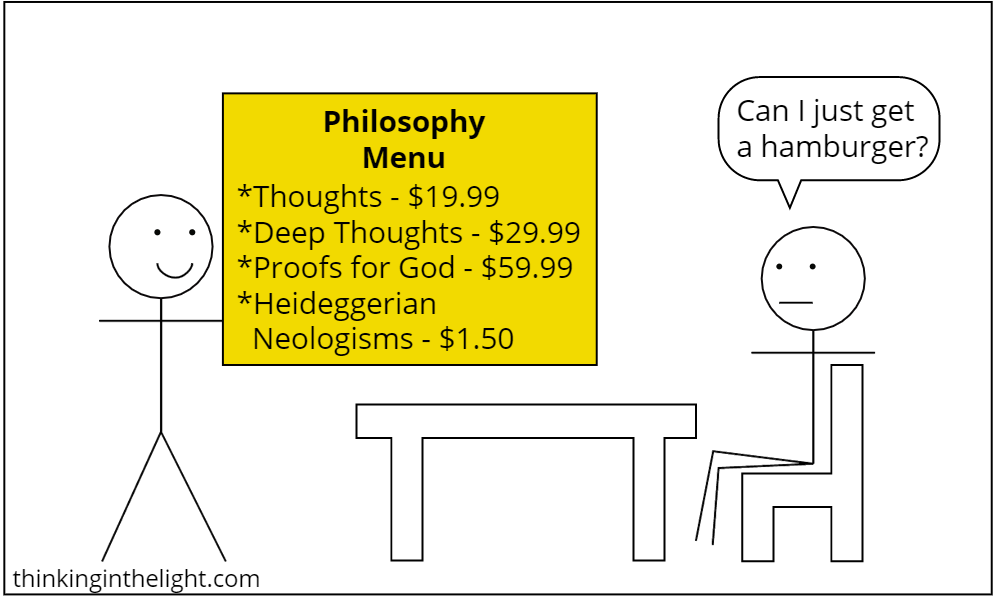
And despite the fact that I am sympathetic to a number of these objections, I am here to try to sell you on philosophy. … Actually, I am a lousy salesman, so I’m here to explain why I think philosophy is valuable. You can decide whether or not you want to buy it.
First, philosophy is a useful tool because it focuses on clarifying concepts. As I explained in my defense of thinking, we don’t just encounter things in the world, but we experience them. This experience depends in part upon our thoughts, both explicit and implicit, and because of this it is helpful to pin down exactly what thoughts we are employing, what ways we are conceiving of the things around us.
For example, let’s take the most basic verb out there: is. If I say “Colin is human” and “Colin is sad,” my meaning is probably clear. Nevertheless, let’s examine more what it means to be. (Oh no! you might be thinking. This is exactly the first objection above—that philosophy makes ordinary things needlessly complicated!) In the first case, Colin is in a way that is permanent. It says what sort of thing he is. In the second case, Colin is in a temporary way. The sentence explains a current aspect of how he is.
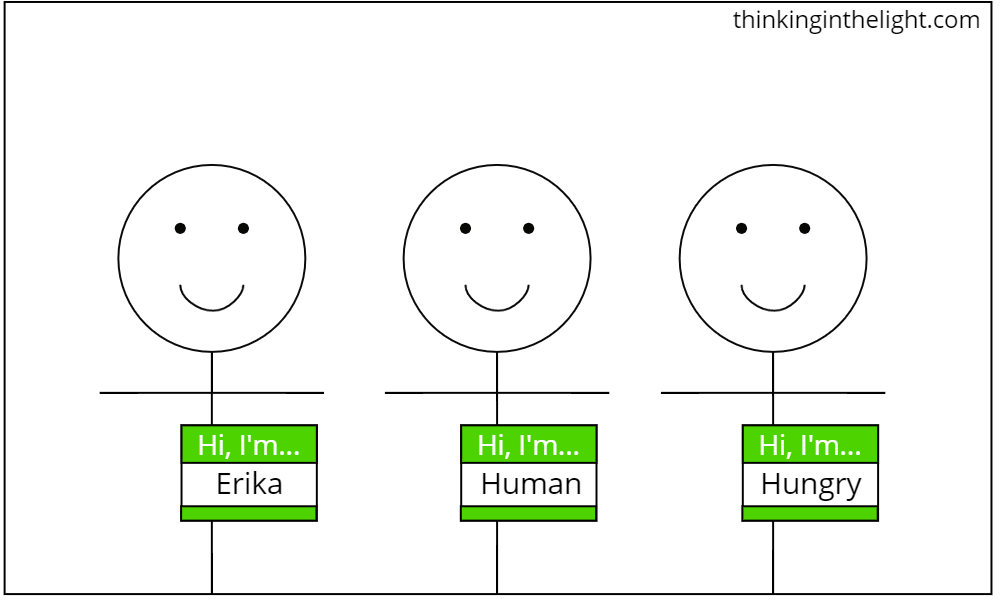
This clarification might not be necessary in the ordinary course of life when it comes to these two sentences. (Ha! I told you so!), but what about the following: Colin is a father. Colin is gay. Colin is an addict. Colin is a Christian. Colin is black. Colin is a hamster trainer. With these cases of what Colin is, are they more like being human or like being sad? Or are these substantially different from either and from each other? It makes a big difference, and it touches a central question of contemporary society: identity.
So clarifying the concepts we are using can be essential—even for such a basic concept as what it means to be. Now, this is not to say that philosophy is always helpful or never needlessly complicates things. Sometimes philosophers can make distinctions that don’t make any difference, or they articulate a concept that doesn’t actually apply to anything in the world. These philosophers can be torturous to read. (I am not even going to try.) But at its best, philosophy can be a valuable tool for clarifying concepts.
Second, philosophy is a useful tool due to the way that it examines the foundations and implications of what we think. (Um… that sounds like overthinking what we already know, as with the objection about science.) We all have thoughts and we all operate in life based on those thoughts. But we don’t always have good reasons for holding those thoughts or understand to what other positions those thoughts inevitably commit us.
Take Monica. She thinks, as do many people, that right and wrong are determined by the customs of a given culture. So if the members of culture A regularly receive elaborate face tattoos, whereas in culture B tattoos are seen as disrespecting the body, then being tattooed is right in culture A and wrong in B. Neither culture can criticize the practice of the other, because they have different moralities.
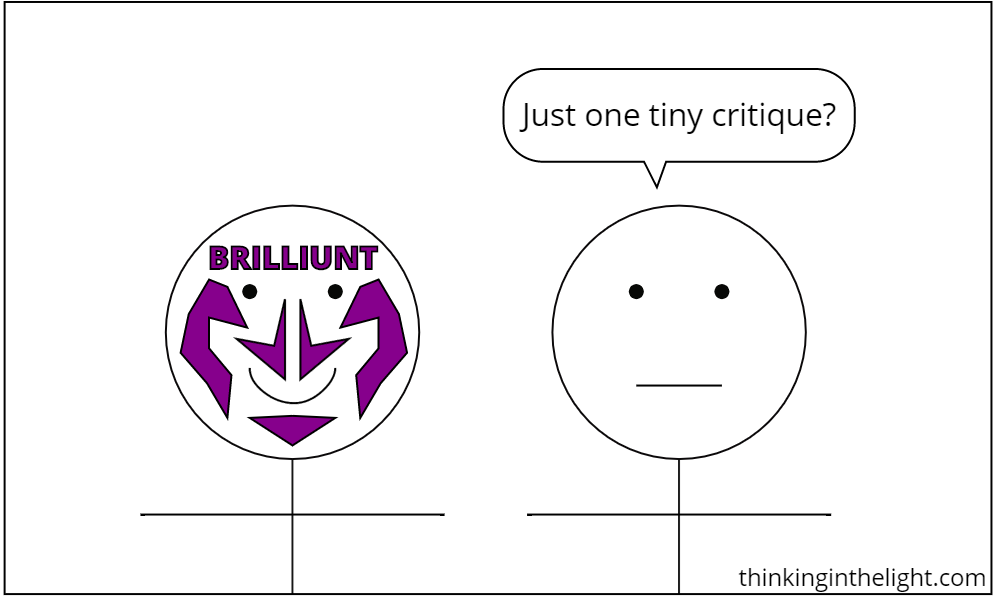
What Monica has not realized, however, are the implications of her position. If it is really true that a culture’s practices define what is morally right, then the Nazis were not wrong to exterminate Jews. And it is not wrong for a majority in society to segregate a racial minority. It is not even wrong to enslave them. (That sounds horrible!) If extermination, segregation, and enslavement are cultural practices, then under Monica’s position, they are actually right to do.
Now, Monica might think through these implications and realize that she does not want to endorse the holocaust, so she decides to adopt the new position that people have inalienable rights as humans. This sounds good (I agree!), but does she have any reason for thinking this position is true? (Why must there always be a ‘but’?) What sort of view of the world would ground this position and provide a foundation for it? What is it about humans that would give them rights? These are the sorts of questions she must ask, or she could be arbitrarily adopting a false position.
Every position we take, every thought we have that guides us through the world, these can all rest on firmer or shakier foundations, and they all carry implications that are either clear or opaque to us. Philosophy tries to help uncover what grounds or follows from a given thought, so that ultimately we can adopt the thoughts that are better.
This is even true when it comes to science, despite the objection. When someone states as a scientific fact that “There is nothing but matter” or “Morality evolved through process XYZ,” these statements need to be examined. Do they have a sufficient foundation in the scientific method, or are they importing assumptions in from elsewhere, assumptions about the limits of our knowledge or the nature of morality? What are their implications, and are these supported by our experience of the world? Philosophy is useful for exploring these kinds of questions, even when it comes to science.
Third, and finally (Whew! The end is in sight!), philosophy is a useful tool because it keeps in view the whole history of philosophers from the earliest writings up to contemporary times. That is, it does not leave us to think on our own.
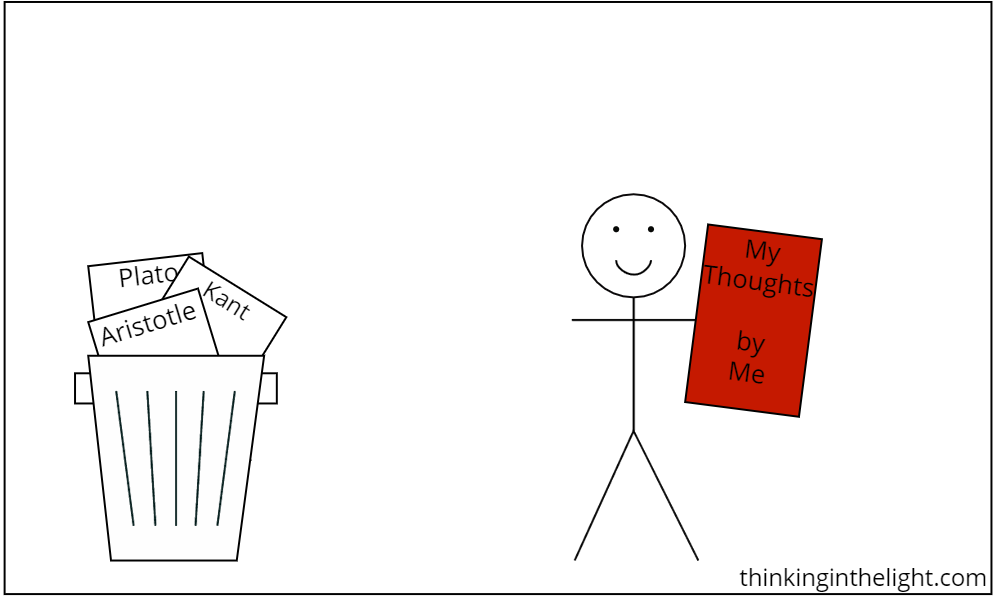
This does not mean that older is necessarily better, but it is a recognition that neither is it automatically worse. We may sometimes know facts the older thinkers didn’t, but the most important fact is that these older thinkers are humans like us. They wrote about many of the same human issues that we face now: death, work, love, God, understanding the world, being a good person. Like with other disciplines in the humanities—music, art, literature—there is much that we can learn from and appreciate in thinkers of past ages.
This means that when we start thinking about a given topic, we have the equivalent of a room full of conversation partners. For example, if I ask what it is to be human, I will receive arguments for a variety of positions. Plato, Descartes, and Kant will argue that humans are primarily rational beings. Nietzsche and Diogenes the cynic argue that we must look at what humans share with animals. Augustine says the most important aspect is being a creation of God. Sartre states that there is no human nature but we each create it through our lives. By reading these arguments, I have a lot to interact with when thinking for myself.
Of course, this interaction can raise various worries. I could worry that I will be persuaded by the authors I read. Some of them must be wrong, since they disagree with each other and can’t all be right. And some have even taken positions that have harmed others when put into practice. (Yes, didn’t Nietzsche inspire the Nazis?) In particular, I could worry about the fact that many of these philosophers are not Christians and fear that they will pull me away from the perspective of the Bible. I could also worry that even if I am not persuaded, it is just a waste of time to read these authors. If they are wrong then I wouldn’t get any benefit from reading them. I might as well read the Harry Potter series for a third time, since that is more enjoyable.
In response to these worries I would start by saying that there is something to each of them. Some philosophers have persuaded people to adopt false—even horrific—views, including playing siren to passing Christians. Some philosophy is not worth reading. Actually, quite a bit of philosophy is not worth reading for the average person, given how many things there are to do in life. And I should read Harry Potter again.
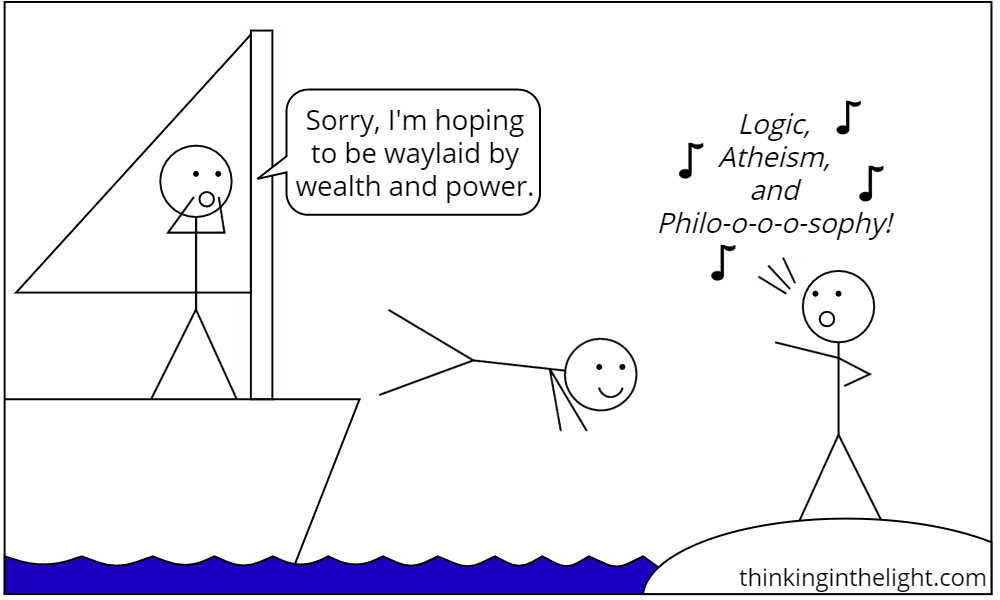
But I would also say that I have benefited from reading philosophy, including atheist philosophers putting forward positions I find false at the core. This benefit comes in a variety of ways. First, not everyone is wrong, so by reading other thinkers I can be convinced of a true position I hadn’t thought of before. And even if one is wrong, I can learn from the true parts of what they say or from the reasoning behind their false positions. Sometimes I discover that I have accepted that reasoning but just didn’t realize its conclusion, and it gives me an opportunity to reject it. Sometimes understanding where a false position goes wrong lets me see more clearly where to find the truth.
In reply, I would say that my own study of philosophy has deepened my faith, rather than pulled me away. Philosophy often tackles questions on which the Bible has much to say, so a Christian may wonder why they should bother with philosophy when we already have the Bible. But the Bible rarely addresses these questions directly. We are left to assemble the Bible’s worldview from a series of histories, poems, and letters. Since philosophy aids in clarifying concepts and thinking about their foundations, as I have been arguing, philosophy is a useful tool in applying the Bible to our lives. Also, the Bible does not address every question we might have. We are left to fill out the picture, trying to be faithful to what the Bible does say, and other philosophers can help with this.
In my own experience, even an explicitly atheist philosopher like Sartre has contributed to my thinking. In some ways his view of the world is the polar opposite of mine, but nevertheless I have learned from some deeply true elements of his thought. Now, if someone was in despair and looking for meaning in life, I would give them the Bible rather than Sartre. But Sartre—and Nietzsche, Plato, Aristotle, Descartes…—have their place, and in my life that place has been significant.
There is much more I could say about philosophy. (That’s OK! I’m good!) Some people would point to its use of logic as being its most important feature. Some would say it is distinguished by making claims about what should be, rather than the way that science speaks to what is. Actually, some people would disagree with the elements of philosophy I’ve lauded above. In particular, many philosophers see philosophy as more of a science and want to jettison its outdated history. As the fourth objection stated, philosophers do not agree what philosophy is.
But as I promised at the beginning, this was a presentation of why I think philosophy is valuable, and I hope I have shown that it is not useless. It has helped me to process the world and my relationship to God, and my goal with this site is to help you benefit from it as well.
